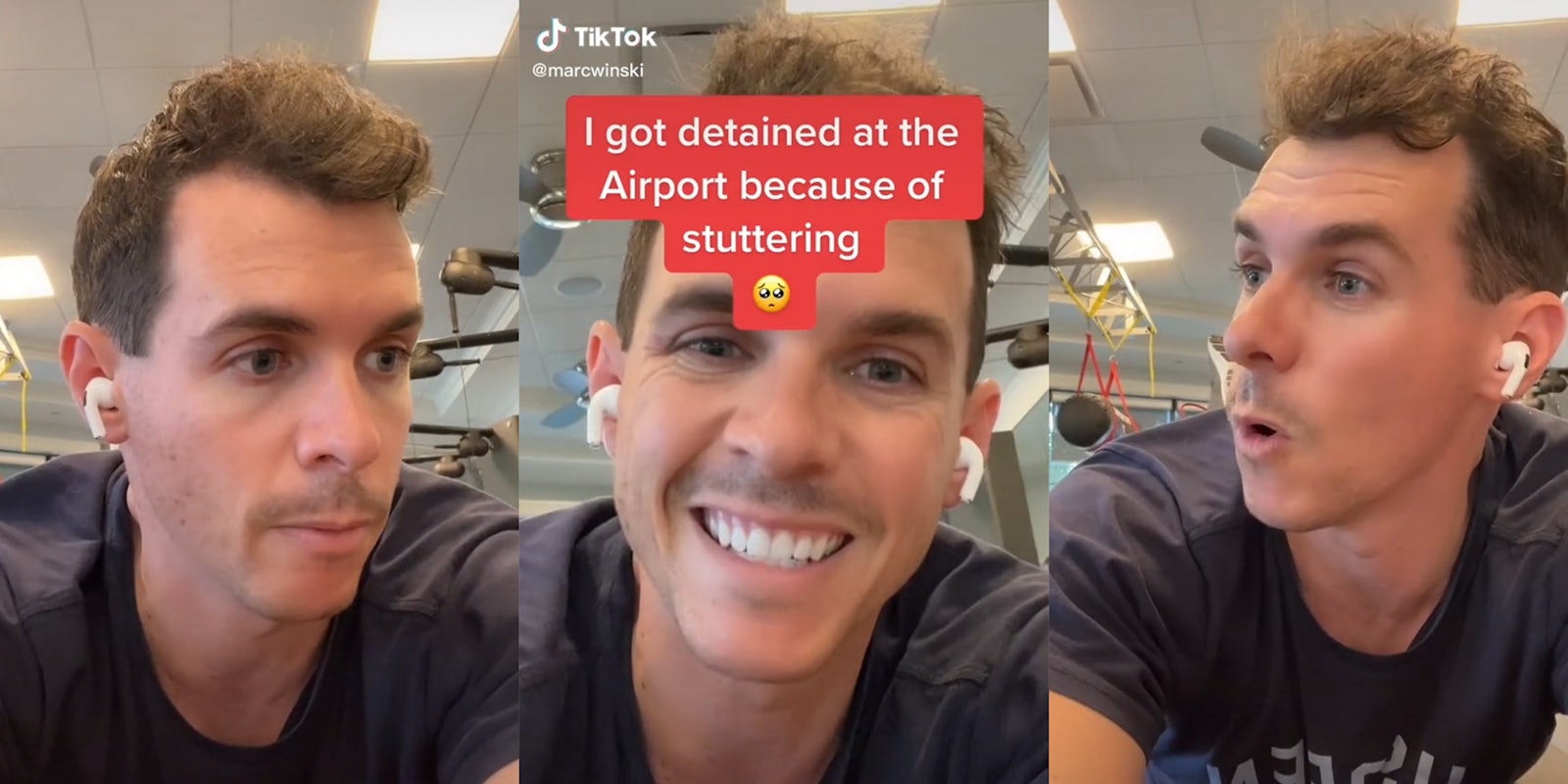A TikToker and advocate for stuttering awareness alleged he was pulled for additional screening by airport Transportation Security Administration (TSA) because of his stutter.
In a video that currently has over 186,000 views, TikToker Marc Winski (@marcwinski) says he “got detained at the airport TSA because of stuttering.”
@marcwinski The things we deal with…. #storytime #stuttering #disability #stutter #airport #tsa ♬ Ambient-style emotional piano – MoppySound
“I was walking through the airport as usual. I was going through TSA. The gate person said, ‘Where are you headed?’” Winski recalls.
“I said, ‘I’m going to Florida,’” he continues, claiming to have responded with a stutter.
“‘Are you sure about that? You seem kind of nervous,’” the TSA agent allegedly answered.
“‘No! I just stutter sometimes,’” Winski says. According to Winski, this answer was apparently insufficient, and he was taken for an additional pat-down.
“Is that discrimination?” he asks at the end of the video. “I’m not sure, but it didn’t make my day. Just another day in the life sometimes.”
The TSA’s practice of pulling passengers based on physical characteristics has been widely criticized as both prejudiced and ineffective.
In 2017, the ACLU reportedly reviewed over 13,000 pages of documents related to the TSA and its practices. From these documents, it concluded that “the TSA’s own files reinforce that the TSA’s use of behavior detection is unscientific and unreliable.”
This finding echoes a similar claim made in a report by the Government Accountability Office (GAO) in 2013, later detailed in the Washington Post.
According to the report, the BDA (Behavior Detection and Analysis) process used by the TSA—then called SPOT (Screening of Passengers by Observation Techniques)—is unsupported by science.
“TSA has not demonstrated that [behavior-detection officers] can consistently interpret the SPOT behavioral indicators,” the GAO report shares. “The subjectivity of the SPOT behavioral indicators and variation in BDO [Behavior Detection Officer] referral rates raise questions about the continued use of behavior indicators for detecting passengers who might pose a risk to aviation security.”
Despite this, the ACLU says that the TSA has routinely “broadened the behavior detection program and its surveillance techniques” while “overstat[ing] the scientific validity of [these] behavior detection techniques in communications with Congress.”
While viewers were upset with TSA, some said that this behavior and others like it are an everyday reality for those with disabilities.
“This is bar none one of my biggest fears,” one user shared. “It’s the reason I have my wife speak for me at airports and border crossings.”
“Yep thats how ableism is a[n] everyday thing,” another added.
Other commenters suggested that Winski look to TSA Cares, “a helpline that provides travelers with disabilities, medical conditions and other special circumstances additional assistance during the security screening process,” according to its website.
Winski did not immediately respond to Daily Dot’s request for comment via website contact form. We’ve reached out to the TSA via email.


